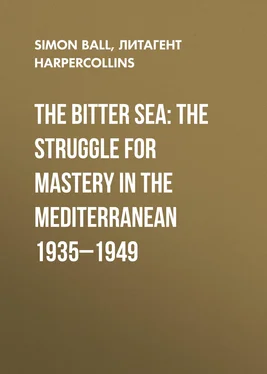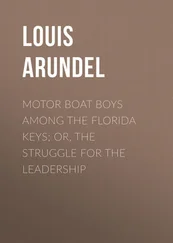There were three schools of thought on this issue. One maintained that all such high matters of state should be decided in London. The military could be given the information they needed and ordered to get on with whatever operations the government decided upon. 39 A second school retorted that this model of central control was unrealistic. Although London and Cairo could talk to each other fairly easily by telegraph, and personnel could be moved to and fro on aircraft, the Mediterranean was really a semi-autonomous world that needed its own sources of information. 40 A third school went even further and argued that military and civil rule in the Mediterranean should be integrated. Britain should create not merely short-term military expedients but political instruments devoted to the long-term maintenance of British power. 41
These somewhat academic discussions were brought into focus by the embarrassing intelligence failure that was the Italian invasion of Albania. The Italian assault had come as such a complete surprise to the British that it found the capital ships of the Mediterranean Fleet paying courtesy calls in Italian ports, ‘lolling about in Italian harbours’, as Churchill put it, bitterly. Even if the British government had wanted to intervene, their own fleet was effectively hostage to good behaviour. The best the ships could do was to surreptitiously slip anchor and make their way back to Malta. By the time the Italian armada had sallied into the Adriatic from Brindisi, various British agencies had received upward of twenty warnings of Italian intentions. None had been taken seriously. It was all very well Chamberlain complaining that Mussolini had acted ‘like a sneak and a cad’, intelligence was supposed to spot the actions of those who were something less than gentlemen. 42
Albania forced everyone to agree that it was no good limiting the ‘men on the spot’ to reporting back to London. There was finally agreement to create a self-contained regional intelligence organization. 43 Agreement in principle did not, of course, mean agreement in practice. The new body was to be called the Middle East Intelligence Centre–although it was usually referred to, not always kindly, as ‘Mice’. The diplomats and spies refused to take part, in the hope that Mice would limit itself to military intelligence. The sailors and the airmen preferred to hand over as few resources to Mice as possible, the Royal Navy at one point saying rather insultingly that they couldn’t spare a real naval officer and would send a Royal Marine instead. But the Centre did begin operating in October 1939. Despite attempts from London to insist that Middle East really did mean Middle East, Mice gaily included the northern littoral of the Mediterranean in its remit. 44 Although staffed almost wholly by soldiers, it was not deterred from offering political advice. The old-established bureaucracies in London suspected that once such agencies were created, they would slip away from central control; that suspicion was borne out in practice. Within months Wavell’s GHQ had grown from a few officers lodging with the British army in Egypt to over a thousand men establishing themselves at Grey Pillars, a modern office building in the south of Cairo’s Garden District. Slowly but surely, assets began to move eastwards. New pan-Mediterranean organizations began to burgeon around Grey Pillars. 45

Those parts of the Mediterranean world not yet mortgaged to either side shifted uncomfortably. In the full spasm of their Mediterranean enthusiasm, the British courted the Turks. ‘On no occasion does it appear to have been realised’, they later chastised themselves, ‘that we needed Turks more than they required us.’ 46 A triple alliance was formed between Britain, France and Turkey. 47 In the person of Maxime Weygand, France had grand plans for this alliance. It was they who paid the direct price of the alliance, slicing off much of the Mediterranean coast of Syria–known as the Sanjak of Alexandretta–and gifting it to the Turks. 48 Appointed as commander of French forces in the eastern Mediterranean, Weygand imagined that he would lead a great expeditionary force into the Balkans from his base in Syria. The British demurred. They could find little appealing in the thought of Darlan harnessing British naval power and Weygand leading Britain’s armies. The French had led the British a merry dance into the Balkans in the Great War, tying down a huge expeditionary force in Salonika for no military gain. The British felt that to play the same trick again lacked something in Gallic subtlety. The Kemalist regime begged to differ. They fêted Weygand and snubbed his British companions, asking why they had failed to draw up such valiant plans. The Turks and the French had a shared interest in British aid, shorn of British direction. Yet whatever their outward show, the Kemalists were playing the French as well. They swallowed the Sanjak but offered little in return. They made this calculation. If Britain and France went to war with Italy in the Mediterranean, they were happy to join in. If Britain and France wanted to fight Germany in the Balkans then that was their problem. Turkey would pursue the strictest neutrality. 49 Right at the beginning of negotiations, Lord Halifax, the British foreign secretary, had noticed that the Turks always worded their commitments very, very carefully. They were willing to act only if a war started ‘in the Mediterranean’. If Germany launched a war elsewhere, if Italy joined in, thereby spreading the fighting to the Mediterranean, Turkey would be under no obligation to fight. He then declared that he could not believe that the Turks were so deceitful. 50 Halifax should have heeded his inner voice. The Turks were that deceitful, and they had said exactly what they meant. 51
Neutralism was equally popular at the other end of the Mediterranean. Recognizing the inevitable, Britain had acknowledged Franco as the legitimate ruler of Spain at the beginning of 1939. In the first flush of victory Franco had not been slow to declare that he was now one of the arbiters of the Mediterranean. Britain and France’s attempts to ‘reduce Spain to slavery in the Mediterranean’ would lead to war. 52 He, Franco, now held the entrance to the sea. Such declarations did not, however, extend much beyond empty rhetoric. The performance of Italian forces in Spain had imbued the Spanish right with considerable scepticism about their goals and capabilities. Yet briefly, in the winter of 1939, Mussolini gained cult status in Spain. Not for reasons of which he would be proud, but for his hesitations and evasions. The Spanish admired his ability to run away from conflict, an ability that they hoped to emulate. Those suspected of wishing to entangle Spain in a new conflict, most notably the foreign minister and Franco’s brother-in-law, Serrano Súñer, could expect a chilly welcome even amongst the most ardently Fascist Spaniards. Among the sullen remnants of the defeated left, on the other hand, at their strongest in the Mediterranean port cities, many hoped that the despised Italians would declare war and suffer humiliating defeat. 53 Franco had the intention of indulging neither his fire-breathing friends nor his hate-filled enemies. He would follow a policy of hábil prudencia– ‘adroit prudence’. 54
Each neutral was a study in ambivalence but the most ambivalent was undoubtedly Greece. Like Mussolini, its dictator, the so-called First Peasant, Ioannis Metaxas, co-habited contemptuously with a decrepit royal house. Greece was home to the classics beloved of the English; but those classics were no guarantee of a democratic temperament. The 1930s Mediterranean cocktail of sun, sea, classical literature and air travel was equally pleasing to others. Josef Goebbels’s dreams came true in the airspace over Mount Olympus. ‘Eternal Greece’ made him warm and happy, perhaps the happiest he had ever been. Greece, after all, was the very homeland of the Gods: Zeus, he thought, was a Norwegian. The ‘Fascist Frankenstein’, Metaxas, reciprocated Nazi warmth. Neither was the liaison confined to tours of the Acropolis and oiled Aryan bodies. The Greeks turned to the Germans for a modern army and arms industry. These new arms were turned, however, not against the degenerate democracies, but against Fascist Italy, the hated ruler of the Dodecanese, molester of Corfu and, latterly, threatened ravager of Epirus. 55 Metaxas quite rightly feared that Mussolini would despoil Greece given half a chance. His fears had been exponentially increased by the Italian invasion of Albania. Metaxas found himself on the receiving end of a British promise of protection. He could hardly say no to such help–but it took him some days to say thank you, in the blandest terms possible. 56 He assured his German friends that he had not colluded in the offer. 57
Читать дальше













